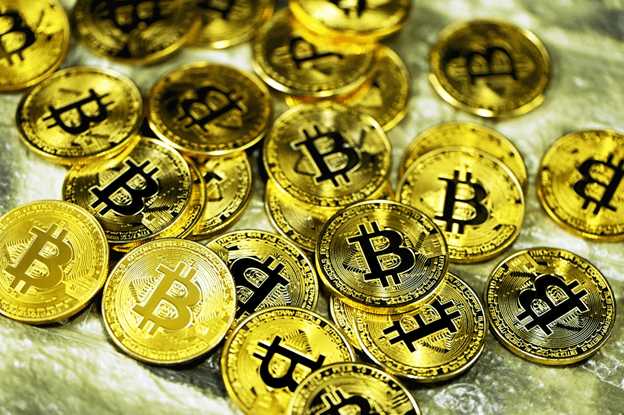
Japan’s Financial Services Agency is preparing to allow banks to enter new cryptocurrency ventures they were never able to pursue. The regulator plans to introduce a proposal to allow banking groups to buy and hold digital assets such as Bitcoin as investments, marking a marked change in the way traditional financial institutions can deal with cryptocurrencies.
Many Changes
The FSA is considering regulations to allow banking groups to register as cryptocurrency exchanges. This change will allow them to offer trading and exchange services directly to customers, a function currently performed by specialized crypto platforms. The Financial Services Agency believes that the involvement of trusted banking institutions will make the overall environment for individual investors safer and more reliable. For those looking to invest in cryptocurrencies like Dogecoin, it could mean more reliable platforms, especially when choosing the best wallets to buy Dogecoin. Currently, many investors are turning to independent exchanges to buy various memecoins and other cryptocurrencies. However, with this new proposal, banks could provide an extra layer of security and familiarity to customers.
Investors could use their existing banking relationships to buy and store digital assets in a regulated environment, making the process smoother and more integrated with traditional financial systems. This change aims to provide both security and convenience, especially for users looking for popular cryptocurrencies.
This proposal will be discussed at one of the upcoming meetings of the Financial Services Council working group. If approved, it is expected to align cryptocurrency investments with more traditional financial products such as stocks and bonds, with additional regulations to ensure a stable and safe investment environment.
Banking Groups to Compete with Existing Stock Exchanges.
Currently, the banking group’s subsidiaries are restricted under the Banking Act, which prevents them from registering as a Crypto Asset Service Provider. The proposed changes will allow securities subsidiaries of banking groups to provide these services, putting them on an equal footing with competitors already in the market.
Currently, the Japanese cryptocurrency exchange market is dominated by securities affiliates. Companies such as Rakuten Wallet (operated through Rakuten Securities) and SBI Holdings units have significant control over the market. However, the new regulatory framework, which allows bank-linked securities firms to enter the market, could disrupt current market dynamics and ultimately lead to higher quality products and services for consumers.
The FSA recognizes that one of the main risks associated with cryptocurrencies is their price volatility. So, in a bid to protect retail investors, the FSA has stated its intention to require bank-linked securities firms to clearly explain the potential for large sums of money to be lost before clients start trading.
Increased adoption drives regulatory evolution
Japan’s crypto market has become one of the largest in the world in recent years. The total number of crypto accounts registered in Japan exceeded 12 million in February 2025, a 3.5-fold increase in five years. This level of growth clearly indicates that public interest in this area is much greater and that regulatory bodies are becoming more favorable to the new industry.
The statistics show a more dramatic increase in what actually happens, as measured by activity on the chain. For example, from July 2024 to June 2025, Japan saw an increase in value received in the chain by about 120% year after year, according to Chainalysis. This created the best overall record of any of the five largest regions in Asia Pacific for cryptocurrency adoption, further showing that regulatory clarity can drive real growth.
The FSA is working to finalize universal cryptocurrency trading rules and expects to have them in place by the end of 2025. It has taken steps to combat crypto insider trading through surcharge orders that require guilty parties to cover any ill-gotten gains.

Economic forces shape crypto policy
Japan’s changing attitude towards cryptocurrencies comes as the country faces serious financial problems. Its national debt has risen to almost 240% of GDP, raising concerns about the possible onset of inflation and financial instability. This extraordinary debt burden is likely to force government authorities to look for alternative financial systems and asset classes.
The government has already begun to embrace digital assets in other forms. Japan has issued its first yen stablecoin. the Monetary Board of Japan approved its release in October 2025. The token is designed for transactions ranging from international money transfers to corporate payments, showing that crypto can be used for more than just speculation.
Issuing Bitcoin as a Treasury asset has also performed well in Japanese corporate takeovers. Metaplanet leads this effort as the most active in Bitcoin acquisitions, having acquired 30,823 BTC, making it the fourth largest corporate holder of Bitcoin in the world. Recently, five Japanese companies announced new acquisitions, adding 156.79 BTC to their holdings.
All these corporate acquisitions and changes to FSA regulation suggest that Japan is making efforts to position itself as a leader in integrating cryptocurrencies into its respected financial system. The proposed changes are said to give banks the power to respond to growing customer demand while maintaining oversight to protect investors from the inherent volatility of cryptocurrencies.

